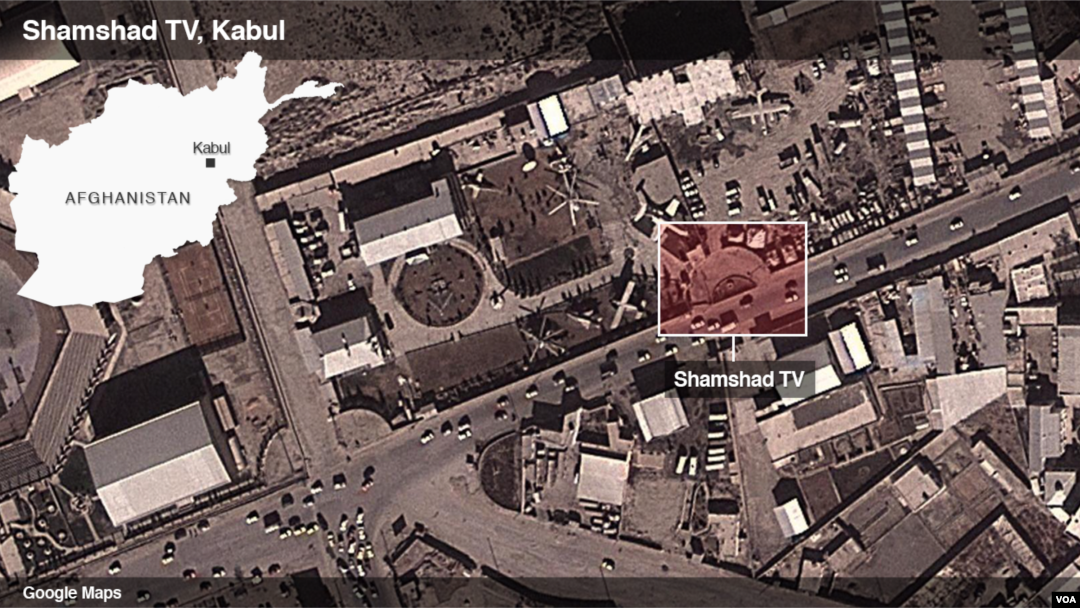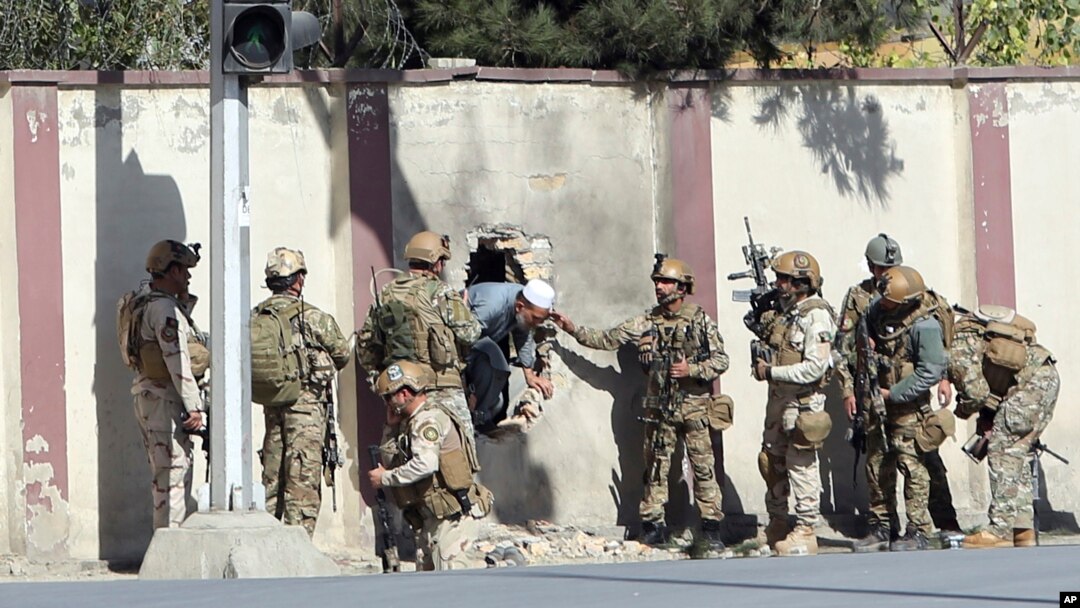A bomb-and-gun attack on the headquarters of a private Afghan television station in Kabul Tuesday left at least four people dead and more than 20 wounded.
Islamic State claimed it plotted the assault against Shamshad TV in the city.
Witnesses said the morning attack began with a suspected suicide bombing, enabling other assailants to storm the facility.

Three more explosions were also heard during the siege which lasted several hours before Afghan security forces gunned down the attackers.
The broadcaster suspended its programing and resumed it, saying “the attack on Shamshad TV has ended.”
An employee at the station told VOA at least 20 wounded people, mostly employees at the station, have been taken to hospitals in the Afghan capital.
WATCH: Eyewitness describes attack
Your browser doesn’t support HTML5
Eyewitness Recounts Attack on Kabul TV Station
Television footage showed members of Afghan forces’ Crisis Response Unit surrounding and trying to enter the building while exchanging heavy gunfire with attackers.
The Taliban insurgency swiftly denied its involvement.
Abed Ehsas, the station’s news director, told the Afghan TOLO channel the attackers threw hand grenades, killing at least one security guard and wounding several others before, "shooting at anyone in their sight.”
“It was an attack on the media and on the people’s voice. It was not the first attack and probably it will not be the last attack [on media],” Ehsas said.
Head of Shamshad TV Fazal Karim Fazal told VOA he doesn't think the channel was targeted for any particular reason. "I don’t know any specific reason that we should be targeted. The enemy is using all means to shut down any program that gives hope to our people,” he said, via Skype.
Afghanistan Journalists Center (AFJC), an independent watchdog defending and promoting freedom of expression in the country, condemned the attack as “a brazen assault” on the Afghan media.
NATO Secretary-General Jens Stoltenberg while speaking at the alliance’s headquarters in Brussels described as “unacceptable” the attack on the Afghan TV station, saying it underlines the importance of supporting the country to fight terrorists and insurgents.
FILE - NATO Secretary-General Jens Stoltenberg talks with journalists as he arrives for a meeting of EU foreign and defense ministers at the Europa building in Brussels, May 18, 2017.
“The attack we saw this morning was yet another example of brutal and horrendous attacks against civilians. The attack has now ended and it was the Afghan security forces that were able to stop it and it shows that the Afghan security forces, they are professionals they are committed and they have the capability to respond when the insurgents are attacking,” Stoltenberg noted.
Afghanistan is on the list of countries considered most dangerous for journalists and media workers. A Taliban suicide bomber in 2016 killed seven members of TOLO, Afghanistan’s largest private television station.
Meanwhile,United Nations Assistance Mission in Afghanistan said Tuesday civilian casualties in attacks on religious worship places and leaders, primarily from the minority Shi’ite Muslim community, have increased in the country in the last two years.
The mission recorded more than 260 fatalities and 572 wounded in the violence since the beginning of 2016, nearly double the figure for the previous seven years.
Two suicide bombings of mosques last month killed at least 72 people in Afghanistan. The deadliest strike was at a crowded Shi’ite worship place in Kabul, leaving 57 people dead.
Islamic State claimed responsibly for that attack.


